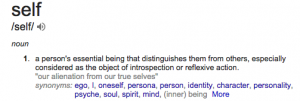Wow, it’s been nearly a year since my last post! I haven’t forgotten this blog. In fact, I think about it all the time and have several posts sitting here, half written, waiting for the motivation to finish them. Frankly, the further away I get from actively practicing midwifery, the less I care about discussing it. And while I’m being perfectly honest, there are some topics I struggle to put into words that won’t burn my bridges in the birth community. But I’m also a master procrastinator, so since I’m supposed to be studying for tomorrow’s exam on microbial genetics, I see this as the perfect time to work on something that is not at all related to microbiology. This is a polished version of something I wrote last year.
——
Something exciting happened to me today. It’s something that happens to most of us at one time or another, with varying degrees of fanfare: I bought a new phone. I’m not a stranger to the thrill of new technology, and the novelty of a new gadget has never been lost on me. But this time it was different. The significant factor here is that I didn’t just choose to upgrade. My phone broke. One minute it worked, the next minute it was gone forever. In the past this had always launched a panic-fueled desperate frenzy to replace it before I missed a call, searching through boxes and drawers for old phones that could be temporarily re-activated, juggling call forwarding to other people’s numbers and setting up VOIP programs to route numbers through wifi . This time around I didn’t just have time to shop for the phone I really wanted, I was able to select and wait two weeks for a phone that hadn’t even been released yet! There actually was a mad dash to the store that night, but it was to purchase an alarm clock. My life is now arranged so that the most important job my phone does is ensure my daughter does not miss the school bus in the morning. This does not feel like a little thing.
My entire career I’ve heard midwives in solo practice bandy about the terms “on call” and “off call”, when what they are really referring to is the likelihood that one of their clients may go into labor. This is not what “on call” means. If a midwife has a client in her care at any time between the initial prenatal appointment and final postpartum visit, she is on call. (At least, that should be what it means. If your midwife promises to only be available to take an emergency phone call from you during the few weeks prior to your due date, you need to find a new one.) For a typical client with a 40 week pregnancy, who begins prenatal care at 8 weeks and receives 6 weeks of postpartum care, this totals 38 weeks of your midwife’s life. That is, for each client, I promised that for 73% of a year I would never have my phone off or away from me for more than an hour. That is a dedication I first made to my preceptor when I began my apprenticeship in 2001, and it continued until I conducted my last postpartum visit in August 2014. The only time during those 14+ years I lived without commitment to a client was 5 months of maternity leave (which was cut short by the sudden death of a colleague). That is 70% of my adult life that I have lived on call.
Of course, there are times when you can predict that you are more likely to actually receive a call than others. I only served women with low-risk pregnancies, so the majority never had any problems or reasons for urgent calls outside of labor. Being self-employed, I had some freedom to accept or decline clients based on whether their due dates conflicted with planned vacations or other commitments I wanted to make (provided they were planned 9-10 months in advance). But life is unpredictable. There was the Christmas morning I left my phone in another room for 3 hours while I opened gifts with my family, and picked it to find desperate messages from a client with cramping and spotting and a text message that read “am I miscarrying?” (yes she was, and I had to send her to the emergency room because I was too far away to see her myself). There was the client who experienced pre-term labor on New Year’s Eve. There was the client who had a pre-term delivery while I was on vacation. There was the Rh negative client who missed a few steps and fell down some stairs while I was at a professional conference. There was the client whose ultrasound revealed she was having twins as I was recovering from surgery. Even those precious few days I arranged for another midwife to cover for me, I was still reachable in case the back-up midwife had any questions about handling my clients, which for some unfortunate reason was the case every time.
Then there were the missed opportunities, like my uncle’s funeral. The week he died I had two clients who were within a few weeks of their due date. For a whole day I debated whether to risk an overnight trip, a 6 hour drive each way, just to spend a few hours with my family. I ultimately decided to stay. For me, the worst part was making that decision knowing that I probably would not be needed by a client, but still being unable to go anyway. I have carried a very low client load in the past few years so even though I spent little of my time actually at a birth, I still spent all my time being on call.
I did not realize the weight being on call pressed on me until it was suddenly gone. I had been crippled by the possibility that I could be called away at any time, and that it might take me away from home for days. Things in my life and my home simply hadn’t been done because I kept waiting for a time when I knew I would not be interrupted, but that time never came. I didn’t sleep well at night for fear that my phone would stop working, or sometimes just for fear that I would receive a call before I had time to get enough sleep (talk about a negative feedback loop!). Having multiple clients who were due at the same time only made it that much worse, as I would return from a birth so exhausted I felt sick, but afraid that if I fell asleep I might sleep so hard that I wouldn’t hear the phone ring. What if it was the mother I had just left, saying she thought she was bleeding too much, or the baby was lethargic? I didn’t eat well, because who wants to run out of the house with a hot pan on the stove? I didn’t mow the yard, because what if I couldn’t hear the phone ring over the sound of the mower, and what if I didn’t have time to take a shower after getting so dirty and sweaty? Garden work? Can you imagine if I showed up to a birth with dirt jammed under my fingernails? I delayed laundry day as long as possible, knowing that if I was called away before I could move a load from the washer to the dryer, they would be mildewed before I got back. And getting my hair done? I would sit in the chair on the verge of a panic attack during the whole appointment.
Please don’t get me wrong, I don’t begrudge any of my clients for needing me at unexpected times. On the contrary, if I hadn’t cared about them there would have been no internal struggle. I was self employed and I could love it or leave it, and I loved it up until the day I chose to leave it (that’s a topic for another day). But it did weigh on me, and I didn’t realize just how much until that weight was gone. I still sometimes wake up in the middle of the night and reach for my phone to check for missed calls, before I remember that it’s safe to sleep well now. I still sometimes tell my husband to move his car, because I don’t want to be blocked in the driveway in the rain in the middle of the night. And when we expected snow this winter, I still fretted for a second about whether I could get out of my neighborhood if there was ice on the road. Then I remembered that it didn’t matter. For the first time in 14 years, I wanted to see snow. I hoped for a good a snow. And when it came, I felt no anxiety. I felt joy.
Want to comment? Start or join a discussion on my Facebook page.


